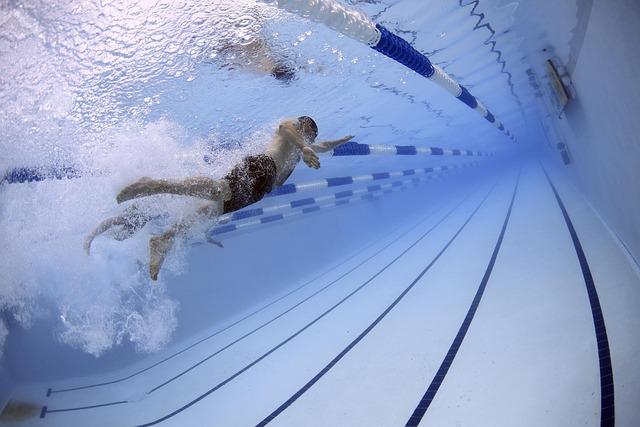Gender,Biology,and Fairness in Elite Sports: Teh Case of Namibia’s Sprinters
In the competitive world of elite athletics,where speed and performance shape legacies,the dialogue around gender,biology,and fairness has become increasingly prominent—especially in light of the Olympic Games. Namibian sprinters have emerged as notable figures on the global stage but have also found themselves at the heart of a contentious debate regarding testosterone testing protocols. As these athletes gear up to display their skills internationally, concerns are rising about a perhaps flawed testing system that could unfairly affect female competitors. This article explores Namibia’s sprinting achievements, recent regulatory shifts in sports governance, and the ongoing discourse surrounding fairness as it intersects with science and gender equality.
Namibia’s Sprinting Achievements highlight Testosterone Testing Issues
The remarkable performances by Namibian sprinters have drawn attention not only for their athletic success but also for raising critical issues related to testosterone testing standards. Athletes such as Christine Mboma and Beatrice Masilingi symbolize both national pride and broader discussions within athletics regarding equity. Their accomplishments prompt scrutiny over whether current testosterone thresholds set by organizations like World Athletics fairly consider natural physiological variations among athletes.
Opponents of existing testosterone regulations argue that these policies can unjustly disadvantage certain athletes—particularly those from diverse ethnic backgrounds who may naturally exhibit higher levels of testosterone. The inconsistent application and interpretation of these rules across different competitions further complicate matters. This inconsistency raises questions about whether governing bodies are genuinely striving for a level playing field or compromising competition integrity through potentially discriminatory practices. The ongoing conversation surrounding their success not only underscores these disparities but also highlights an urgent need to reevaluate how testosterone is assessed within women’s sports.
Assessing the Effects of Testosterone Regulations on Female Athletes’ Rights and Performance
The situation involving Namibia’s sprinters brings forth significant ethical considerations at the intersection of science and sport. Numerous female athletes with naturally high testosterone levels encounter various obstacles due to regulations perceived as disproportionately affecting their right to compete fairly. The governing body for athletics continues to face backlash over its enforcement of lower testosterone limits; critics argue that such measures undermine both female sports integrity and athlete rights while prompting inquiries into the scientific basis behind using hormone levels as a criterion for athletic eligibility.
- Performance Impact: These regulations can lead to unintended consequences such as disqualification from competitions, resulting in lost income opportunities for affected athletes.
- Ethical Dilemmas: Many contend that targeting specific individuals based on biological traits rather than skill undermines fair competition principles.
- Bigger Picture Implications:This controversy could set precedents affecting various sports disciplines while challenging how athlete rights are defined and upheld.
| Description of Regulation Aspects | Pertinent Consequences |
|---|---|
| Criterions for Eligibility | Denyance from participating in events |
| Earnings Impact | Losing sponsorship deals or financial support |
Strategies for Reforming Testosterone Regulations to Promote Equity in Sports
The evolving landscape within competitive sports necessitates reforms concerning current testosterone testing protocols which often place undue pressure on underrepresented groups among athletes due to bias or scrutiny they face during evaluations . To combat this systemic inequity , several pivotal changes should be implemented . Frist , regulatory authorities must establish uniform testing procedures aimed at eliminating discrepancies arising from varying laboratory methods . Such standardization would ensure all competitors undergo consistent evaluations , minimizing favoritism risks associated with differing interpretations . Additionally , adopting a more thorough approach towards assessing athlete capabilities is crucial ; this means considering individual physiology alongside genetics rather solely focusing upon hormone concentrations alone .
A commitment towards fostering inclusivity must take precedence moving forward ; engaging stakeholders—including medical professionals ,advocacy organizations ,and most importantly—the athletes themselves will help shape equitable guidelines respecting diversity amongst participants involved across all sporting arenas proposed initiatives might include launching educational programs designed enhance understanding surrounding hormonal complexities impacting performance outcomes within athletics lastly establishing obvious review processes regularly evaluating adapting existing policies according evolving insights human biology sport sciences would promote fairness while reinforcing global sporting event integrity illustrated below :
| Suggested Reforms | Potential Benefits | ||||||
|---|---|---|---|---|---|---|---|
| Standardize Testing Procedures | < td >Minimizes bias enhances reliability across assessmentstd > tr >< tr >< td >Comprehensive athlete Evaluations | Acknowledges unique physiological differences | td > tr >< tr >< td >Educational Initiatives | Boosts awareness comprehension regarding hormonal influences | td > tr >< tr >< td >Transparent Review Mechanisms | ensures adaptability responsiveness regulation frameworks | td > tr > |

